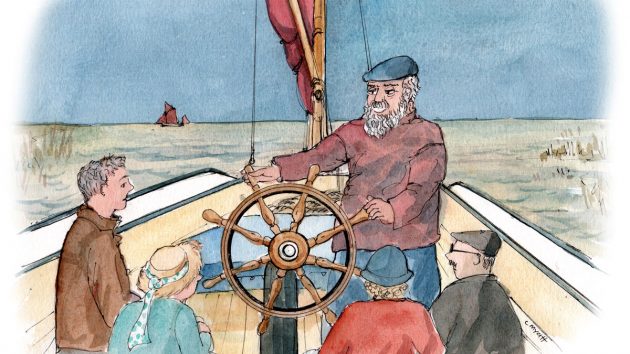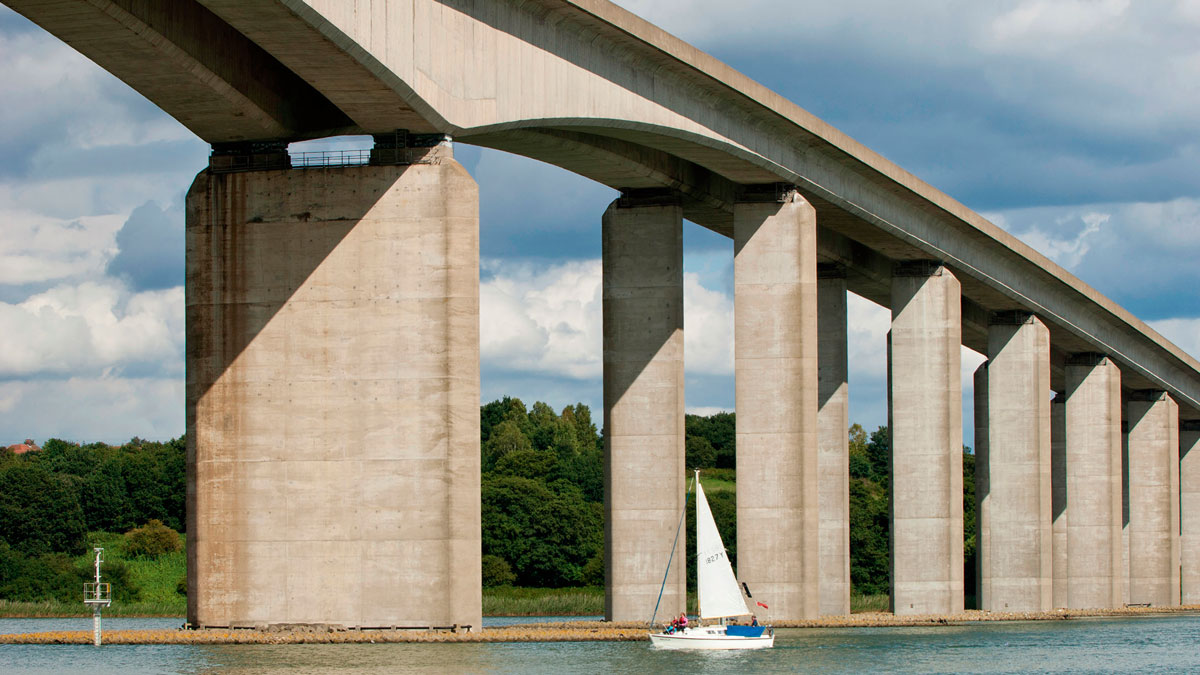PBO columnist Dave Selby laments the decline of oral history lessons at the Maldon branch of Essex University in the Queen’s Head pub
Since time immemorial, and even before that, the folk of Essex have been renowned for spinning yarns and telling tales with such aplomb that far more than you’d think have been found innocent.
Sadly, what with CCTV and dash-cams, this rich oral tradition is fading into the past, but over the years I’ve made strenuous efforts to preserve the more legitimate aspects of this seam of living history by conducting interviews in the Maldon branch of Essex University in the Queen’s Head pub.
It’s where the old timers used to gather, and though many of them are long gone their stories live on through the generations.
And none told better stories than those who worked the shallow, tea-brown waters of the Blackwater estuary and labyrinth of the marsh-bordered Essex archipelago.
One such was Tubby Blake, renowned as the only barge skipper to have shot down enemy aircraft in World War II. In fact, he did more than that, as he once recounted in a remarkable story of pluck and courage on BBC Radio Essex.
In wartime, as part of our coastal defence system, some barges were fitted with ancient World War I Browning machine guns, and though they had little hope of hitting anything it was a morale boost for those who stayed at home in essential industries.
Barge skippers also got remuneration for mounting guns on their foredeck.
As Tubby told his astonishing tale: “There was these three Fockes, right, and I hit the first Focke and brought him down, then I winged the second Focke and saw the pilot parachute down into the marshes. I would have got the third Focke too, if my gun hadn’t jammed.”
Alarmed by his language, the interviewer interceded and said: “Ladies and gentlemen, lest you be offended I should explain that a Focke-Wulf is actually an aeroplane.”
To which Tubby replied: “You’re absolutely right, but these ones was Messerschmitts!”
I know Tubby actually existed, though I doubt the veracity of the tale, but this yarn was one of many I heard from Jimmy Lawrence, a famed barge skipper, traditional sail maker and raconteur who left us in January this year, and is much missed.
Continues below…
Love on the rocks? – Dave Selby’s Mad about the Boat
This just in: all the nice girls might not love a sailor after all
Six rivers and a backwater – cruising the East Coast of England
John Kingsnorth endeavours to ‘go with wind and tide’ and cover as many English East Coast rivers as possible in…
Rescuing Essex Melody – a classic cruiser purpose built for the East Coast
John Rogers describes the heritage and restoration of Essex Melody, a classic, Maldon-built 23-footer which originally took to the water…
Jimmy, who spoke in a soft Essex burr that is now also a thing of the past, spanned the years of trade in sail and the early days of recreational barge charter in the 1960s where what passed for ‘safety briefings’ merely involved telling guests that there wasn’t any safety.
On one occasion he recalled that he had on board a particularly nervous woman who said: “I can’t swim, what shall I do if we sink?” to which Jimmy replied: “Just hold your breath and wait ’til you hit the bottom, then run like billy-o.”
Whine of Esturine
Another who speaks in the disappearing lilt that has largely been replaced by the whine of Estuarine is Noddy, who runs the Viking Saga trip boat out of Maldon.
His commentaries are worth the trip alone, and his safety briefings somewhat more reassuring than Jimmy’s as he dryly announces over the tannoy: “Unlike the Titanic, we do have enough lifejackets for everyone on board… and on the plus-side, we ain’t seen an iceberg in weeks.”
Steve Hall is a renowned traditional sailmaker in Tollesbury where his sail loft is a transport of delight into the past and full of maritime and fishing ephemera that connects to and chronicles the living history of East Coast sailing.
He picks up an old lead-line, which before the days of echosounders was used not just to sound for depth, but to reveal the nature of the sea bottom with tallow inserted into the socket that would pick up either mud, gravel or sand.
Instruction in its use was part of a time-honoured initiation ritual for new hands-on fishing smacks, as Steve explained in his gentle Essex brogue. The skipper would instruct the novice to swing the lead and on recovering it would say: “Now, son, lick it and tell me what it tastes like.”
“Sir, I don’t know how to put it,” says the lad, retching involuntarily, “but it tastes like poo.”
“Ah,” says the skipper, “reckon we’ll be over the sewer pipe then.”
That was certainly an education for the lad, and so it is for me to hear these Essex tales from tongues that talk down the ages.







